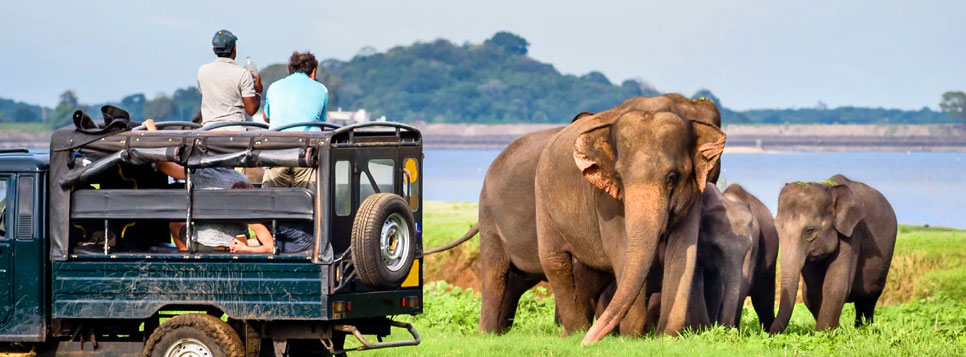Jaldapara Safari: Conservation Efforts and Sustainable Tourism in Focus
By Tushar- [22/Jan/23] Jaldapara National Park is a treasure trove of biodiversity, housing a significant population of the elusive one-horned Indian rhinoceros. As the region witnesses an increasing influx of tourists eager to explore its natural wonders, it becomes imperative to shed light on the conservation efforts and promote sustainable tourism practices that can ensure the preservation of this unique ecosystem.
Conservation Efforts:
Rhinoceros Rehabilitation Programs: Jaldapara National Park has been actively involved in rhinoceros conservation through rehabilitation programs. The Indian rhinoceros, listed as vulnerable, has found a safe haven in Jaldapara, where dedicated efforts are made to protect and increase their population. Conservationists and park authorities work together to monitor and ensure the well-being of these magnificent creatures.

Community Involvement:
Sustainable conservation involves the local community in the protection and preservation of the park. Jaldapara has implemented community-based conservation initiatives, providing employment opportunities to the local population. By engaging communities, the park aims to create a sense of ownership, making them valuable partners in the conservation journey.
Anti-Poaching Measures:
The park employs stringent anti-poaching measures to safeguard its wildlife, especially the endangered species. Continuous patrolling by forest guards, use of technology like camera traps, and collaboration with law enforcement agencies contribute to minimizing the threat of poaching, ensuring the safety of the park's inhabitants.
Sustainable Tourism Practices:
Limited Visitor Numbers: Sustainable tourism involves balancing the economic benefits of tourism with the conservation needs of the ecosystem. Jaldapara restricts the number of visitors to the park at any given time, ensuring that the delicate balance of nature is not disrupted. This approach guarantees a more intimate and less intrusive experience for tourists while minimizing the environmental impact.
Educational Programs: A crucial aspect of sustainable tourism is visitor education. Jaldapara National Park conducts educational programs to raise awareness among tourists about the park's biodiversity, conservation challenges, and the importance of responsible tourism. Informed visitors are more likely to engage in practices that contribute positively to the preservation of the environment.
Promotion of Eco-Friendly Accommodation: To reduce the ecological footprint of tourism, Jaldapara encourages eco-friendly accommodation options. Visitors can choose from lodges and resorts committed to sustainable practices, such as waste reduction, energy conservation, and water management. Supporting these establishments aligns with the principles of responsible tourism.
Guided Tours and Responsible Behavior: Tourists are encouraged to participate in guided tours led by trained naturalists who emphasize the importance of responsible behavior. This includes staying on designated paths, refraining from littering, and maintaining a respectful distance from wildlife. These guidelines ensure that visitors can enjoy the beauty of Jaldapara without compromising the well-being of its inhabitants.
Upon his father's passing when he was just a year old, Nripendra Narayan, as the eldest son, assumed the throne. Initially, he governed under a commissioner appointed by the Governor. However, in October 1862, he took direct control as the ruler and continued his reign until 18 September 1911. The construction of the Cooch Behar Palace took place 25 years after his accession to the throne, serving as his seat of rule.
Conclusion:
Jaldapara National Park stands as a testament to the successful integration of conservation efforts and sustainable tourism practices. By focusing on rhinoceros rehabilitation, community involvement, and implementing responsible tourism measures, the park not only protects its rich biodiversity but also provides a model for other wildlife destinations. As visitors, our responsibility lies in embracing and promoting these sustainable practices, ensuring that Jaldapara remains a thriving haven for wildlife for generations to come. Visit our website for booking Jaldapara Jeep Safari hassle free.